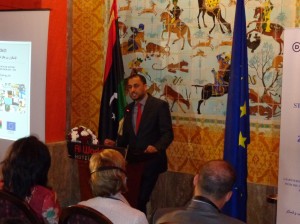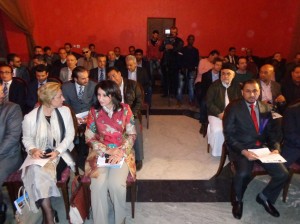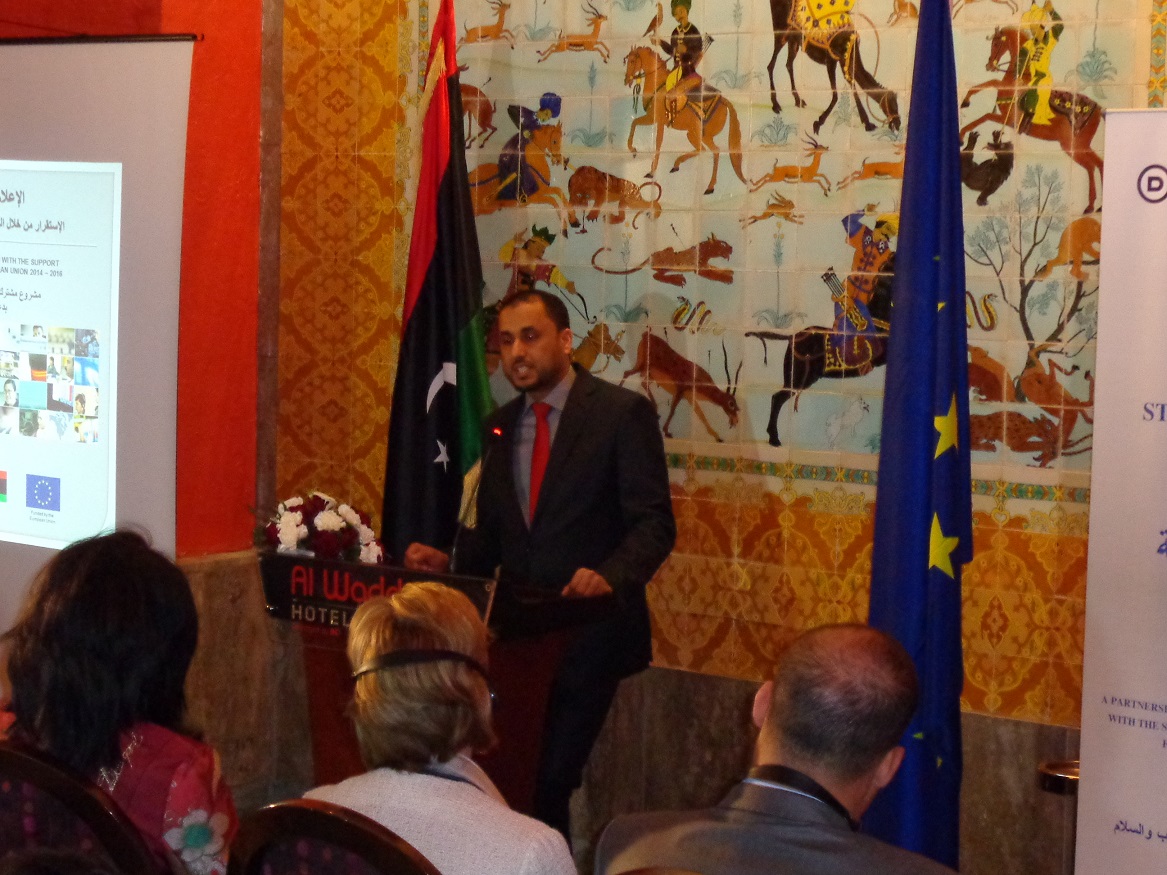By Sami Zaptia.

Tripoli, 1 April 2014:
In a small crammed room at Tripoli’s Waddan hotel last Saturday, Deutsche Welle Akademie, in a joint . . .[restrict]project with the EU and Institute for War & Peace Reporting (IWPR), launched the “Media in Libya – Stability through Structure” programme.
The event was attended by the Second Deputy head of the General National Congress (GNC), Salah Makhzoum, Deputy Minister of Information Lamia Abousedra, Head of the EU Delegation to Libya Nataliya Apostolova, as well as various other diplomats and dignitaries.
The Euro 3 million project aims at the “consolidation of the state of democratic reform and institution building in Libya by supporting the emergence of a free high-quality press and media, and thereby enhancing the context for political development in particular through the constitutional process” , the EU reports.
The project is composed of four clusters, namely: media governance and regulatory framework, public media transition scheme, journalism independence initiative and Libyan content development fund. This last is a two-year grant project by the European Union Delegation to Libya undertaken by IWPR in partnership with DW Akademie .
This fund will award 29 grants to Libyan outlets that are aimed at building capacities to produce high-quality media content relevant to the political transition democracy, good governance, human rights, the role of women in society, constitutional process and minorities rights .
Salah Makhzoum, in his opening remarks, thanked the EU for its support in helping organize the Libyan media sector adding that “Libyan media is in crises and this is reflected on the political scene. The negatives that currently exist in Libya are normal for a post revolutionary state but I am surprised that the media concentrates on the negatives”.
Nevertheless, the Second Deputy Head of the GNC stressed that “one of the biggest victories of the February 17th revolution is the free press. But free press does not mean media chaos. We need to organize the media organizations, but this does not mean that we want to control the media”, Makhzoum emphasized

Deputy Minister of Information Lamia Abousedra said that “there can be no democracy without a flourishing free press, but we need rules and regulations to protect this right. The Libyan citizen has the right to receive the right information and therefore the media has the duty to improve its output and deliver the correct information to the citizen”.
EU ambassador Apostolova for her part, stressed the fact that “after 42 years of propaganda-style media there are many challenges facing the development of modern media and strong demands for professionals to develop a modern media sector “. [/restrict]








